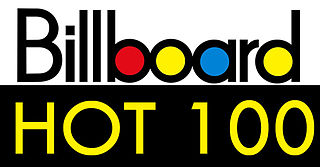This article needs additional citations for verification .(March 2021) (Learn how and when to remove this template message) |
Emission is the radiation or radio signal produced or emitted by a radio transmitting station. [1]
This article needs additional citations for verification .(March 2021) (Learn how and when to remove this template message) |
Emission is the radiation or radio signal produced or emitted by a radio transmitting station. [1]
The Australian Broadcasting Corporation (ABC) is Australia's national broadcaster. It is principally funded by the direct grants from the Australian government, and is administered by a board appointed by the government of the day. The ABC plays a leading role in journalistic independence, and is fundamental in the history of broadcasting in Australia.

BBC Radio 1 is a British national radio station owned and operated by the BBC. It specialises in modern popular music and current chart hits throughout the day. Radio 1 provides alternative genres at night, including electronica, dance, hip hop and indie, whilst its sister station 1Xtra plays Black contemporary music, including hip hop and R&B. Radio 1 broadcasts throughout the UK on FM between 97.1MHz and 99.7MHz, Digital radio, digital TV and on BBC Sounds. It was launched in 1967 to meet the demand for music generated by pirate radio stations, when the average age of the UK population was 27. The BBC claim that they target the 15–29 age group, and the average age of its UK audience since 2009 is 30. BBC Radio 1 started 24-hour broadcasting on 1 May 1991.

Morse code is a method used in telecommunication to encode text characters as standardized sequences of two different signal durations, called dots and dashes or dits and dahs. Morse code is named after Samuel Morse, an inventor of the telegraph.

Rush Hudson Limbaugh III was an American radio personality, conservative political commentator, author, and television show host. He was best known as the host of The Rush Limbaugh Show, which was nationally syndicated on AM and FM radio stations.

The Hitchhiker's Guide to the Galaxy is a comedy science fiction series created by Douglas Adams. Originally a 1978 radio comedy broadcast on BBC Radio 4, it was later adapted to other formats, including stage shows, novels, comic books, a 1981 TV series, a 1984 video game, and 2005 feature film.

The BBC World Service is an international broadcaster owned and operated by the BBC. It is the world's largest of any kind. It broadcasts radio news, speech and discussions in more than 40 languages to many parts of the world on analogue and digital shortwave platforms, internet streaming, podcasting, satellite, DAB, FM and MW relays. In 2015, The World Service reached an average of 210 million people a week. In November 2016, the BBC announced that it would start broadcasting in additional languages including Amharic and Igbo, in its biggest expansion since the 1940s.
The Canadian Broadcasting Corporation, branded as CBC/Radio-Canada, is a Canadian federal Crown corporation that serves as the national public broadcaster for both radio and television. The English- and French-language service units of the corporation are commonly known as CBC and Radio-Canada, respectively.

Radio waves are a type of electromagnetic radiation with wavelengths in the electromagnetic spectrum longer than infrared light. Radio waves have frequencies as high as 300 gigahertz (GHz) to as low as 30 hertz (Hz). At 300 GHz, the corresponding wavelength is 1 mm ; at 30 Hz the corresponding wavelength is 10,000 km. Like all electromagnetic waves, radio waves in a vacuum travel at the speed of light, and in the Earth's atmosphere at a close, but slightly lower speed. Radio waves are generated by charged particles undergoing acceleration, such as time-varying electric currents. Naturally occurring radio waves are emitted by lightning and astronomical objects.

Voice of America (VOA) is an American international broadcaster funded by the United States Congress. It is the largest and oldest U.S. funded international broadcaster. VOA produces digital, TV, and radio content in 47 languages which it distributes to affiliate stations around the globe. It is primarily viewed by foreign audiences, so VOA programming has an influence on public opinion abroad regarding the United States and its people.
Public broadcasting involves radio, television and other electronic media outlets whose primary mission is public service. In many countries of the world, funding comes from governments, especially via annual fees charged on receivers. In the United States, public broadcasters may receive some funding from both federal and state sources, but generally most of their financial support comes from underwriting by foundations and businesses, along with audience contributions via pledge drives. The great majority operate as private not-for-profit corporations.

Deutsche Welle or DW is a German public state-owned international broadcaster funded by the German federal tax budget. The service is available in 30 languages. DW's satellite television service consists of channels in English, German, Hindi, Spanish, and Arabic. The work of DW is regulated by the Deutsche Welle Act, meaning that content is intended to be independent of government influence. DW is a member of the European Broadcasting Union (EBU).

The Billboard Hot 100 is the music industry standard record chart in the United States for songs, published weekly by Billboard magazine. Chart rankings are based on sales, radio play, and online streaming in the United States.

The Turkish Radio and Television Corporation is the national public broadcaster of Turkey, founded in 1964. Around 70% of TRT's funding comes from a tax levied on electricity bills and a license tax on television and radio receivers. As these are hypothecated taxes, as opposed to the money coming from general government funds, the principle is similar to that of the television licence levied in a number of other countries, such as the BBC in the United Kingdom. The rest of TRT's funding comes from government grants, with the final 10% coming from advertising.

Mediacorp Pte. Ltd. is Singapore's media and entertainment group that serves as the national public broadcaster for both radio and television in the country. As a mass media conglomerate, it holds interests in radio broadcasting, television broadcasting and digital content creation.

Joanne Whiley-Morton, better known by her professional name Jo Whiley, is an English radio DJ and television presenter. She was the host of the long-running weekday later weekend Jo Whiley Show on BBC Radio 1. She now currently presents her weekday evening Radio 2 show.

FM broadcasting is a method of radio broadcasting using frequency modulation (FM). Invented in 1933 by American engineer Edwin Armstrong, wide-band FM is used worldwide to provide high fidelity sound over broadcast radio. FM broadcasting is capable of higher fidelity—that is, more accurate reproduction of the original program sound—than other broadcasting technologies, such as AM broadcasting. Therefore, FM is used for most broadcasts of music or general audio. FM radio stations use the very high frequency range of radio frequencies.

The All-Russia State Television and Radio Broadcasting Company, in short VGTRK (a.k.a Russian Television and Radio is a state-owned broadcaster which operates many television and radio channels in 53 of Russia's languages. The company was founded in 1990 and is based in Moscow.

Radio is the technology of signaling and communicating using radio waves. Radio waves are electromagnetic waves of frequency between 30 hertz (Hz) and 300 gigahertz (GHz). They are generated by an electronic device called a transmitter connected to an antenna which radiates the waves, and received by a radio receiver connected to another antenna. Radio is very widely used in modern technology, in radio communication, radar, radio navigation, remote control, remote sensing and other applications.
The British Broadcasting Corporation (BBC) is a public service broadcaster, headquartered at Broadcasting House in Westminster, London. It is the world's oldest national broadcaster, and the largest broadcaster in the world by number of employees, employing over 22,000 staff in total, of whom more than 16,000 are in public sector broadcasting. The total number of BBC staff amounts to 35,402 including part-time, flexible, and fixed-contract staff.

Amateur radio, also known as ham radio, is the use of radio frequency spectrum for purposes of non-commercial exchange of messages, wireless experimentation, self-training, private recreation, radiosport, contesting, and emergency communication. The term "amateur" is used to specify "a duly authorised person interested in radioelectric practice with a purely personal aim and without pecuniary interest;" and to differentiate it from commercial broadcasting, public safety, or professional two-way radio services.
| | This article related to radio communications is a stub. You can help Wikipedia by expanding it. |